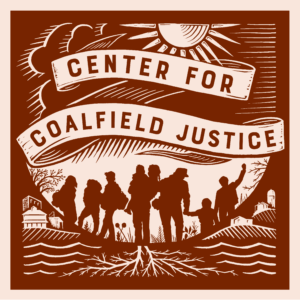
FOR IMMEDIATE RELEASE: August 16, 2022
Media Contact: Lisa DePaoli, lisa@centerforcoalfieldjustice.org, 724-229-3550, ext. 5
The Inflation Reduction Act Includes Some Wins, But Ensures Frontline Communities Will Continue to Face Environmental Injustices
Washington, PA – Signed into law by President Biden today, the Inflation Reduction Act makes an historic investment in reducing carbon emissions and includes benefits for some frontline communities. Unfortunately, the law does not do enough to address the root causes of our climate emergency, and instead, tethers this country to the same polluting industries and fossil fuel companies that are harming our climate and communities the most.
“This is a crisis. We cannot afford any fossil fuel expansion,” said Veronica Coptis, Executive Director of the Center for Coalfield Justice. “Unfortunately, this law is the product of a backroom deal that could weaken environmental protection laws through permitting reform. Doubling down on natural gas drilling is a recipe for disaster, and the IRA sells out our allies in the Gulf South to more offshore drilling that exacerbates damage to the climate and the extreme weather events like flooding and hurricanes that impact us all.”
Positive aspects of the IRA include:
- support for the permanent extension of the Black Lung Disability Fund, which will save lives. However, this important fund will need an increase in rate in the near future in order to remain solvent.
- a Methane Emission Reduction Program that includes remediation efforts to reduce emissions and clean pollution on Abandoned Mine Lands.
- Rural Community Investments of $20 billion for climate resiliency in agriculture and $14 billion for lower energy costs and clean energy jobs in rural areas.
- Environmental Justice Investments of $60 billion, including public health and transportation access projects in environmental justice communities, along with Justice40 (directing a whole-of-government effort to deliver 40% of benefits from federal investments toward environmental justice communities) for all spending in the bill.
“The devil is in the details when it comes to implementing these federal resources, and we need to continue to fight to ensure that frontline communities are getting their due share of benefits,” said Veronica Coptis. “The fight to protect our communities from pollution and severe weather events is not over. Continued momentum will require an increased focus on the needs of frontline environmental justice communities to have their voices, experiences, and futures centered in our climate and economic policymaking.”
###
www.centerforcoalfieldjustice.org
We fight for coalfield communities through advocacy, education, and organizing.
